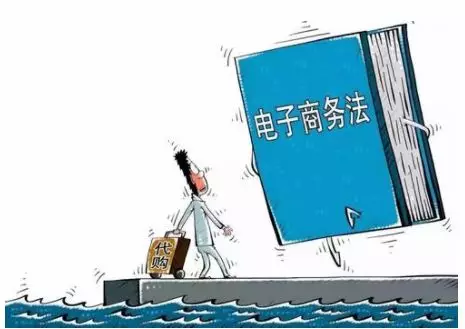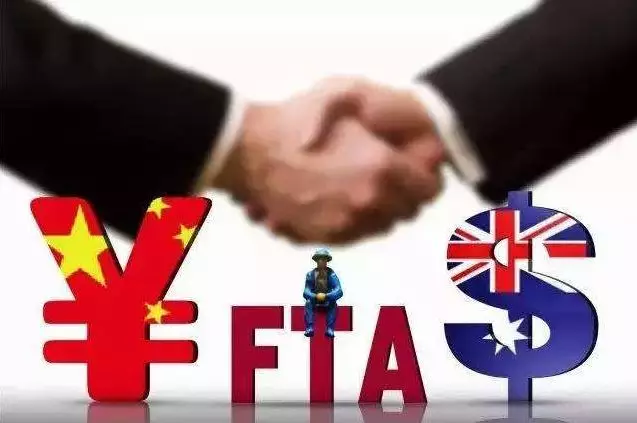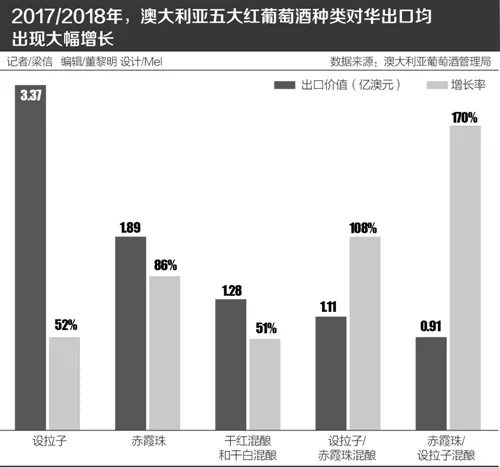With the joy of New Year’s Day, we officially ushered in 2019. With the official implementation of the e-commerce law and the formal implementation of zero-tariff tariffs in China and Australia, 2019 is a year of struggle, a year of harvest, and 2019 is more suitable for “swinging up sleeves and cheering”!

The People’s Republic of China Electronic Commerce Law was officially implemented
From January 1, 2019, the “Electronic Commerce Law of the People’s Republic of China” (hereinafter referred to as “Electric Commerce Law”) was officially implemented. In this law, the behavior of e-commerce operators, including individuals, was regulated. Purchasing belongs to “e-commerce operators”, and registration and taxation are also required. Some purchases are suspended and remain on the sidelines. Some self-operated e-commerce platforms believe that the E-Commerce Law is good news for themselves. The “Electric Business Law” also stipulates the concerns of consumers, such as praise, tie-up, big data killing, deposit refund, and other consumer concerns.

1, purchasing also needs to register tax
The new “Electronic Commerce Law” stipulates that e-commerce operators, including “purchasing”, also need to register the market entities and pay taxes according to law. Those who evade supervision, such as WeChat friends, live broadcast platforms and other purchasing and micro-businesses are hard to hide this time, the “E-commerce Law” will strengthen the supervision of related fields to better resolve such consumer disputes.
2, the business can not delete the bad review praise
The new “Electronic Commerce Law” stipulates that e-commerce platform operators shall not remove the evaluation of the goods or services provided by consumers on their platforms; at the same time, the law also stipulates that e-commerce platform operators should establish a sound credit evaluation system and publicize credit evaluation. The rules provide consumers with a way to evaluate the goods or services provided in the platform, otherwise they may be fined up to 500,000 yuan.
The introduction of the “Electronic Commerce Law” makes it possible for those e-commerce platforms that have bad reviews to be praised.
3, bundled tying must be clearly stated
The bundled sales routines are believed to be of many consumers, and it is really a headache to explicitly sell things that are not needed. Now, this kind of scene will be stopped. The E-commerce Law stipulates that the violators will be fined between 50,000 yuan and 200,000 yuan. If the circumstances are serious, they will be fined between 200,000 yuan and 500,000 yuan.
4, big data killing is prohibited
The “big data killing” that was followed last year was also mentioned in the “Electronic Commerce Law”. “E-commerce operators who provide search results for goods or services according to their hobbies, consumption habits, etc. should simultaneously Providing the consumer with an option that does not address their personal characteristics, respecting and equally protecting the legitimate rights and interests of consumers.”
5, the deposit will not be timely and will be fined
In the “Electric Business Law”, it also stipulates the deposit matters: if the e-commerce operator collects the deposit according to the relevant consumer, it shall express the way and procedure of the refund of the deposit, and may not set unreasonable conditions for the refund of the deposit. If the consumer applies for the refund of the deposit and meets the conditions for the refund of the deposit, the e-commerce operator shall return it in time. If the e-commerce operator receives a deposit in accordance with the relevant consumer, it shall express the way and procedure for the refund of the deposit, and may not set unreasonable conditions for the refund of the deposit. If the consumer applies for the refund of the deposit and meets the conditions for the refund of the deposit, the e-commerce operator shall return it in time.
6, platform operators self-operated should be marked
Some online shopping platforms confuse self-operated business with non-self-operated business in the promotion of webpages. In the case of consumer rights protection, the platform operators are non-self-operating entities as defenses and refuse to take responsibility. The “Electronic Commerce Law” clearly stipulates this situation. First, if the platform operators are required to carry out self-operated business, they should distinguish the marks in a significant way, and must not mislead consumers to protect consumers’ right to know and choose; It is stipulated that the platform operator shall bear the civil liability of the seller or the service provider for the business marked as self-operated, and prevent the platform operators from engaging in the self-operated business for profit. When the problem occurs, they will blame and evade supervision. The third is to explicitly violate the penalties prescribed in Article 37 and ensure that the legal provisions are effectively implemented.
7. The platform operator is not obligated to be responsible according to law.
Lost and lost by the windmill; found a job on the Internet recruitment platform and suffered pyramid schemes, etc., many cases said that many consumers are infringed on the platform, the platform wants to clear up the responsibility, clearly stated in the “Electric Business Law”, the future The platform will be strengthened. The e-commerce law stipulates that if the platform has relevant illegal acts, it must also assume administrative responsibility and criminal responsibility according to law.
8, businesses are not allowed to “catch a single”
In response to the problem of e-commerce arbitrarily chopping orders encountered by consumers, the “E-commerce Law” clearly stipulates that, first, the e-commerce operators publish information in accordance with the conditions of the offer, the user selects the goods or services and submits the order successfully, and the contract is established. Second, platform operators and e-commerce providers in the platform may not make excuses for their breach of contract in the form of format clauses. Third, if the format clause or the like contains the price paid by the consumer and the contract is not established, the content is invalid. Legislation clearly makes relevant provisions, which helps to urge operators to be honest and trustworthy, to fulfill their contractual obligations, and to reduce consumer rights.
9. Strengthen the burden of proof of the operator
Article 62 of the E-commerce Law stipulates that the platform operators and operators in the platform shall submit their obligations to provide relevant evidence, such as original contracts and transaction records, and stipulate that they are lost, forged, altered, destroyed, concealed or refused to provide. The above information is subject to unfavorable legal consequences by e-commerce operators.
10, delivery on time to let the courier stop procrastination
The E-Commerce Law stipulates that express logistics service providers who provide express logistics services for e-commerce shall abide by laws and administrative regulations and shall comply with the promised service specifications and time limits. The delivery logistics service provider shall prompt the consignee to inspect the goods when delivering the goods; if it is handed over by others, it shall be approved by the consignee. The contract is marked as delivered and delivered by express delivery. The consignee’s receipt time is the delivery time. If the contract is marked as providing service, the time specified in the generated electronic voucher or physical voucher is the delivery time; if the foregoing voucher does not specify the time or the specified time is inconsistent with the actual service delivery time, the actual service delivery time is the delivery time.
For the wine merchants who are importing wine, the formal implementation of the E-commerce Law provides a more fair and equitable market environment for China, making the wine market more standardized and reasonable.
China and Australia zero tariff officially implemented

From January 1st, 2019, all tariffs on Chinese goods entering Australia will be cancelled, and China will give Australia a total of 75.8 billion orders. China and Australia officially entered the era of zero tariffs.
At present, China is Australia’s largest trading partner and largest export destination, and Australia is China’s sixth largest export destination. In the past five years, Australian wines have grown by 221% in terms of sales, and China has become Australia’s largest wine export market.

Among all wines and wines exported to China, red wine accounts for 95%, and the five major red wines have seen significant growth. Shiraz increased 52% to A$337 million, Cabernet Sauvignon increased 86% to A$189 million, dry red blends and dry white blends increased 51% to A$128 million, and Shiraz/ Cabernet Sauvignon blended 108 % to A$111 million, Cabernet Sauvignon/Shiraz blend increased by 170% to A$91 million.
The Australian Wine Authority’s report shows that in the past year, Australian wine exports to China at various price points have been growing, with high-end wines growing most rapidly, with wine exports valued at more than $200 per liter growing more than 220%.
“As far as the wine industry is concerned, China is an emerging market that is growing rapidly, and the UK is already a relatively mature market.” Andreas Clarke, CEO of the Australian Wine Authority, believes that the Chinese market has been in the past decade. The demand for wine is growing rapidly and wine is becoming a daily choice for many consumers.
Australia, as a dark horse of New World wines, now has a good opportunity for zero tariffs in China and Australia, and Australian wines will further penetrate the Chinese wine market.
China is Australia’s largest export market for wines. With China’s favorable policy environment and strong support from the Australian government, Australian wines will rise to a new level. This is a cost reduction, a competitive advantage, and an unimaginable development space for wine companies doing Australian wine.
For wines and other alcoholic products, the fastest and most effective way to expand the market is through professional exhibitions. SuperWine (Shanghai International Wine & Spirits Exhibition) has been successfully held for dozens of internationally renowned professional exhibitions and will be held in the National Exhibition Center for the 20th session from May 29th to 31st, 2019. Are you ready to “shoulder your sleeves and work hard”?


